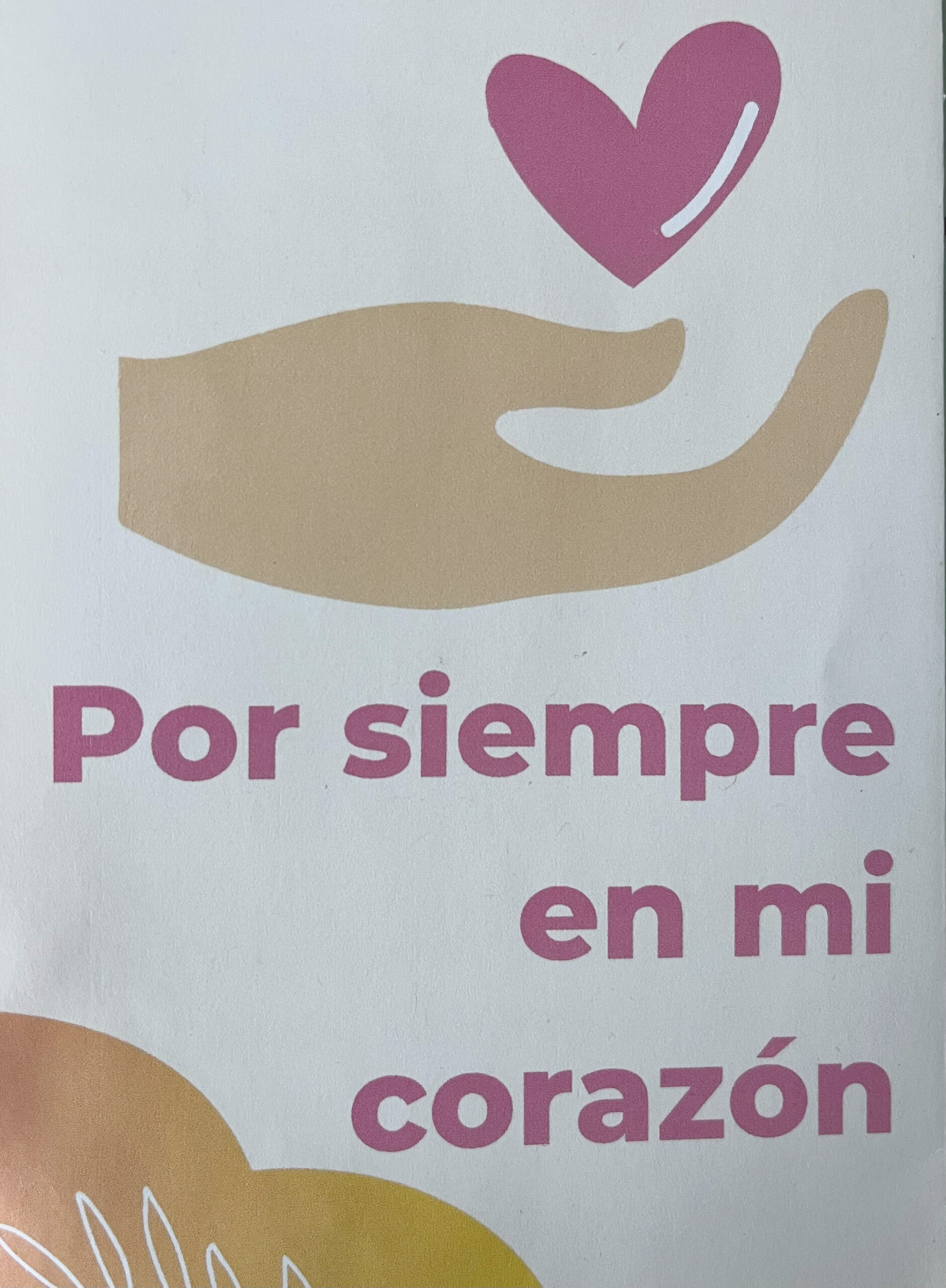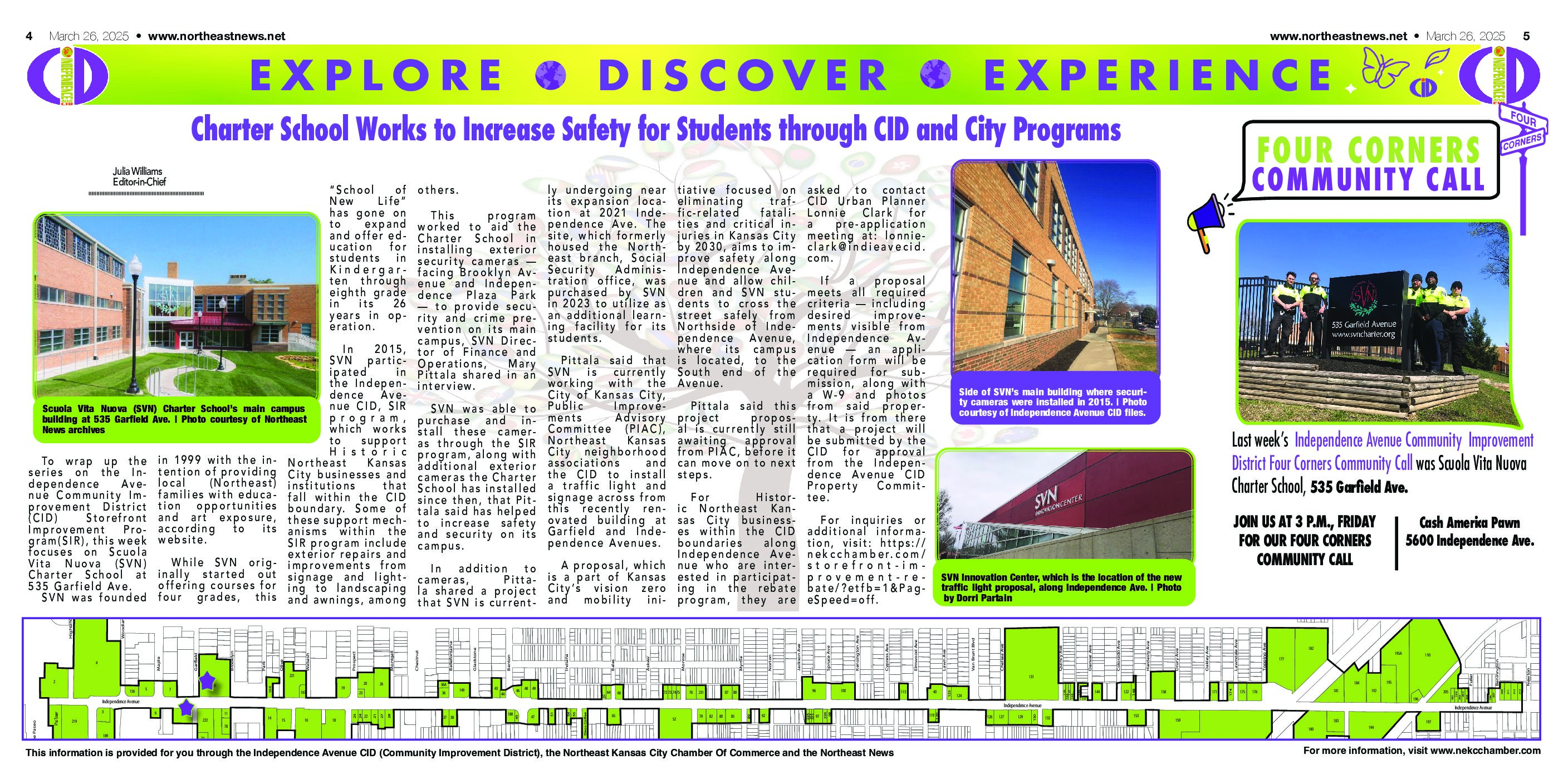
Daisy Garcia Montoya
Education Reporter
On Saturday mornings, at the Latinx Education Collaborative (LEC) space, a group of women gathers to share stories of dead loved ones through tears, laughter and love.
The experience of losing a loved one, specifically a child, encompasses the difficulty and complexity of the grieving process, which crosses through many stages and lasts a lifetime.
As individuals work to continue to live their everyday lives with an absence present, many feel lost on where to start or without the tools to help process their grief.
Noticing a specific need within mothers in the Latino community, with a lack of access to resources in Spanish, the support group Grupo de Ayuda Mutual Por Siempre en mi Corazón (Mutual Aid Group Always in My Heart) was created.
Liliana Rodriguez, the psychologist who helps in moderating and guiding the group, said that her own journey with immigration grief eventually led her to becoming involved with the group.
Rodriguez — an immigrant from Mexico — said that when she first arrived in the U.S.over 20 years ago, she came to realize that she had symptoms of post traumatic stress disorder (PTSD) from the grief she experienced as an individual who left a life behind to begin a new one as an immigrant.
“I began to look for a support group that helped immigrants; I had the idea that one would exist. As an immigrant, there’s many losses like the language, the home, and family. In my case it was more traumatizing as I had a career there and when I arrived in the U.S. I practically was no one,” Rodriguez said.
Although she didn’t find a support group that fulfilled her needs, she began therapy and continued to increase her knowledge in the subject by obtaining further credentials, so that she could apply what she learned and create a support group for immigrants experiencing grief.
As she looked to develop this group, what she found instead was a need among mothers for a space where they could talk about their emotions and explore grief with one another.
Rodriguez met Emma Delgado, a mother who had lost her son, during a time period when local nonprofit Mattie Rhodes Center held a temporary grief group. Delgado also noted the necessity to have an ongoing group for others, and aided as one of the founders of Para Siempre en Mi Corazon.
Rodriguez then began taking courses that focused specifically on the grief of mothers and aids as a guide since its inception two years ago. Since it is an open-support group, participants are not required to continuously attend, with many attending consistently, while others come and go as their grief journey allows.
“The group is practically theirs, I just help coordinate them. I always have a workshop prepared but I always ask them how they would like to lead the class — an open discussion or if they would rather hear the lesson, but it’s always up to them and how they’d like to lead the session,” Rodriguez said.
Jazmin Marmolejo, mother of Victor Marmolejo, shared that the support group has helped her throughout her grieving process by providing her the tools to continue to live everyday life.
Marmolejo, who lost her son due to an fentanyl overdose in 2021 at the age of 16, said that when her son had just passed, she told people that he had died of a heart attack.
“I felt guilty for what had happened to my son and the fact that I didn’t notice or see any signs of him using fentanyl. In Latino culture, there’s this mentality that you keep your dirty laundry at home and you don’t ask for help,” Marmolejo said. “I felt like I would be judged for what happened to my son but with help from the group my perspective changed.”
After Victor passed, Marmolejo said that she spent five months where she shut everyone out as she grieved and dealt with her emotions caused by the loss. When she received a call from a school counselor that her youngest son was dealing with the loss through anger, she decided it was time to look for resources for grief.
As a participant at the Mattie Rhodes Center’s temporary support group, she was able to exchange numbers with other grieving moms, which would later form part of the current Para Siempre en Mi Corazon group. Recalling the early days of the group, Marmolejo said that since they didn’t have a specific place designated for the sessions, mothers would offer their home as a place of reunion — hers being one for a year and a half.
“It’s my therapy and safe space. On Saturdays I go and cry with my friends. If I want to yell, I yell with my friends. I know they do not judge me and we can say the same things over and over again, and we’ll hug and be there for one another. On Saturdays, I let it all out, I get home drained sometimes because it is mentally and emotionally tiring but I know on Sundays, it’s a new day but sometimes I can’t wait for Saturdays to share how my week went,” Marmolejo said.
As for the cultural component, Rodriguez and Marmolejo said it’s important for Latino families to know that they are not alone in their grieving journey, that it is okay to reach out for help and the importance of taking care of one’s mental health.
Particularly having the mutual aid group in Spanish has made it easier for mothers to join due to the removal of the language barrier and knowing that they will be surrounded by others who are of the same culture and view and process death in the same way.
“The love I have for him keeps me going. The group won’t take the pain away but you learn to live with it, it becomes a part of you. You learn to live differently, taking it a day at a time, appreciating the small things you didn’t before. You see things marvelously, you can see a butterfly or a bird and see the beauty in it,” Marmolejo said.
As part of her journey dealing with the loss of her son Victor, Marmolejo has worked with the City of Kansas City in its ‘Unfinished Legacies’ campaign, which showcases the stories of fentanyl overdose victims to their community — bringing them back to life through the use of artificial intelligence (AI).
The campaign was in response to the 1000% increase of fentanyl deaths between 2017 to 2021, according to the City’s page on the campaign.
“It was hard to do at first, but I saw it as a way for his legacy to continue beyond our lives and to help others from fentanyl,” Marmolejo said. Victor’s story can be found here: https://youtu.be/IDMINGSy_7U.
Rodriquez encourages others to seek help and to recognize the importance of mental health as oftentimes the body may speak when the mind doesn’t and cause further symptoms when dealing with grief and other mental health problems.
“Taking care of yourself in turn creates a healthier society. I continue to encourage participants to seek a therapist and further professional help but this is a start. When one person in a household experiencing grief seeks help, it changes and helps everyone. If you have grief you have not dealt with, we can help you,” Rodriguez said.
Mothers looking to get more information on the Spanish-based grief support group can do so by visiting its Facebook page. The group is registered as a nonprofit organization in Kansas and Missouri, opening up access to more participants.
Sessions are open and hosted twice a week, one from 4 to 6 p.m. on Monday at the Kansas City Public Library’s North-East Branch (6000 Wilson Ave.) and the other from 10 a.m. to 12 p.m. on Saturday at 2301 Lexington Ave.



















